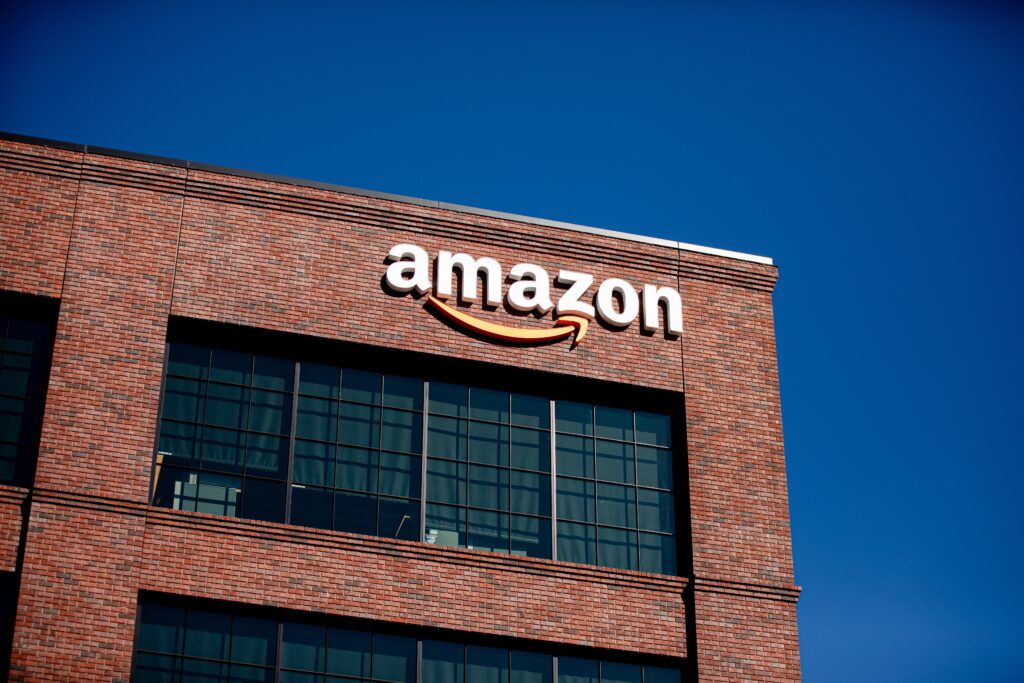US President Donald Trump directly reached out to Amazon founder Jeff Bezos on Tuesday to address concerns regarding Amazon’s potential plan to disclose trade tariff costs to its customers. The conversation followed reports suggesting that Amazon had considered adding tariffs to its products on Amazon Haul, a budget-focused platform launched in 2024. Despite internal discussions, Amazon ultimately decided against implementing the plan. This exchange highlights growing political scrutiny over President Trump’s tariff policies and their potential impact on American businesses.
The Controversial Disclosure Plan
Amazon’s recent deliberations to disclose tariff-related price hikes to its customers were met with significant attention. Amazon Haul, which aims to provide affordable products similar to platforms like Shein and Temu, was set to display the added costs of trade tariffs. However, after internal discussions, Amazon clarified that the idea was never fully approved, and it would not move forward with the plan.
Pressure Mounts Over US Tariff Policies
The backlash from the White House underscores the increasing pressure surrounding President Trump’s tariff policies. Critics argue that the tariffs could drive up consumer prices and lead to further economic challenges. At a White House briefing, Press Secretary Karoline Leavitt described Amazon’s tariff disclosure plans as a “political provocation” and suggested that it conflicted with the administration’s push to “buy American.”
Leavitt pointed out that such measures were not considered during President Biden’s tenure when inflation had already reached four-decade highs. The growing controversy emphasizes the broader debate over the economic consequences of Trump’s trade decisions.
Impact of Tariffs on Trade and Prices
Since returning to the White House in January, President Trump has expanded tariffs, claiming they would boost American manufacturing and generate government revenue. However, the new tariffs, which have been applied to a wide range of imports, have sparked concerns about rising costs and disrupted trade.
For instance, Chinese goods now face tariffs as high as 145%, leading to a sharp decline in trade between the US and China. Analysts predict supply chain disruptions for everyday products, such as umbrellas and baby strollers, where China remains the dominant supplier. Platforms like Shein and Temu, which rely on Chinese producers, have already raised prices to account for the new tariffs.
Amazon’s Role in the Tariff Debate
Amazon, which depends heavily on Chinese sellers, has found itself caught in the middle of the debate. Reports suggest that Chinese sellers make up about half of the merchants on Amazon’s US marketplace. The company had reportedly explored the possibility of showing tariff costs on its Amazon Haul platform, but this idea was quickly dismissed after internal discussions.
Despite the speculation, Amazon emphasized that no official decision was made to implement tariff disclosures. Spokesperson Tim Doyle confirmed that the idea was explored but never approved. He also mentioned that the decision not to proceed had nothing to do with the White House’s public comments.
Trump’s Praise for Bezos’ Quick Response
After the phone call, President Trump praised Jeff Bezos for his swift action in addressing the issue. Trump remarked, “Jeff Bezos was very nice. He handled it well. He fixed the issue fast. He made the right call. He’s a good guy.”
This moment marks a rare positive exchange between Trump and Bezos, who have had a complicated history. Despite their occasional collaboration, the two have often been at odds, particularly over Amazon’s business practices and Trump’s political views.
The Complicated Relationship Between Trump and Bezos
The relationship between Trump and Bezos has always been a source of public intrigue. During his first term, Trump frequently criticized Amazon and its owner, especially regarding the Washington Post, which Bezos owns. At one point, Bezos accused Trump of eroding democracy with his rhetoric. There have also been public jokes about Bezos launching Trump into space, leveraging his space company, Blue Origin.
In 2019, Amazon filed a lawsuit against the Pentagon, accusing Trump of sabotaging their bid for a $10 billion defense contract, allegedly to punish Bezos for being a political adversary. This legal battle added another layer of complexity to their relationship, making this recent phone call between the two figures even more notable.
The interaction between President Trump and Jeff Bezos over Amazon’s tariff disclosure plan highlights the ongoing tensions between politics and business in the US. While Amazon ultimately decided not to pursue the tariff transparency initiative, the episode reflects the broader issues surrounding trade policies and their impact on global companies. As US tariffs continue to shape the landscape for international trade, companies like Amazon will likely face ongoing scrutiny over their responses to these economic shifts.
